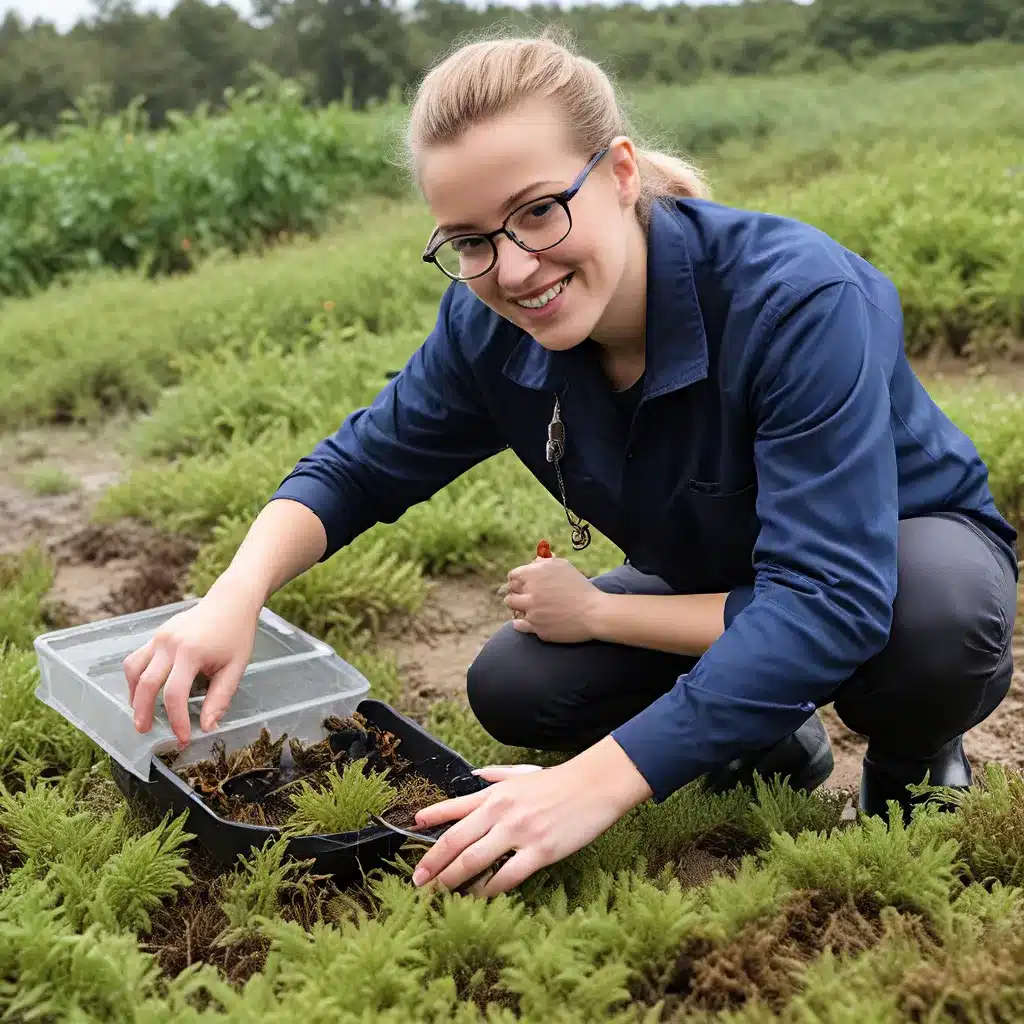
Exploring the Diverse Roles of Marine Invertebrates in Aquatic Ecosystems
Marine invertebrates are the unsung heroes of aquatic environments, playing vital and multifaceted roles that often go unnoticed. From filtering water to cycling nutrients, these remarkable creatures are the foundation upon which thriving marine ecosystems are built. As aquarium hobbyists, understanding the significance of invertebrates and how to properly care for them is key to maintaining the health and balance of our captive aquatic worlds.
One of the most well-known roles of marine invertebrates is their ability to filter water and improve local water quality. Oysters, for example, can filter up to 50 gallons of water per day, making them natural water purifiers. By removing excess nutrients like nitrogen and phosphorus, these bivalves play a critical role in regulating water parameters and preventing harmful algal blooms. As we strive to create pristine, self-sustaining aquatic environments, incorporating filter-feeding invertebrates can be a game-changer.
Beyond water filtration, marine invertebrates are also integral to nutrient cycling. Organisms like sponges and jellyfish play a significant yet often overlooked part in the transfer of carbon, nitrogen, and other essential elements through marine food webs. By actively absorbing or releasing these nutrients, they help maintain the delicate balance that sustains aquatic life. Understanding the specific roles of different invertebrate species in nutrient dynamics can inform our aquarium management strategies and ensure we are providing the optimal conditions for a thriving ecosystem.
The Importance of Invertebrate Habitat Engineers
Certain marine invertebrates, known as ecosystem engineers, are vital for creating the structural complexity that supports diverse assemblages of species. Corals, for instance, build intricate three-dimensional reef habitats that provide shelter, nursery grounds, and food sources for countless other invertebrates and fish. Without these foundation species, the biodiversity and ecological integrity of many marine environments would be severely compromised.
Similarly, barnacles play a crucial role in intertidal zones, where their hard tests create essential microhabitats for vulnerable juvenile snails and polychaete worms. By offering protection from predators and harsh environmental stressors, these invertebrate engineers enhance the overall resilience of the system. Incorporating barnacle-mimicking structures or materials into our aquascapes can help replicate these natural benefits and support a thriving invertebrate community.
Invertebrates in the Biomedical and Cosmetic Industries
In addition to their ecological importance, marine invertebrates have also become increasingly valuable in the biomedical and cosmetic industries. Compounds extracted from organisms like sea cucumbers and jellyfish are being utilized for their skin-whitening, anti-aging, and wound-healing properties, driving a growing demand for these species.
While the commercial harvesting of invertebrates can provide economic benefits, it is crucial to ensure that these practices are sustainable and do not deplete wild populations. Responsible aquaculture practices, as well as the development of synthetic production methods, can help meet the growing demand while minimizing the environmental impact. As hobbyists, we can support conservation efforts by advocating for regulated and ethical sourcing of invertebrates for these industries.
Challenges in Marine Invertebrate Conservation
Despite their essential roles, marine invertebrates face a multitude of threats, from habitat destruction and pollution to invasive species and climate change. The IUCN Red List, the leading authority on the conservation status of species, reveals a concerning disparity in the representation of marine invertebrates compared to their vertebrate counterparts. Many invertebrate species remain data deficient, hindering our ability to develop targeted conservation strategies.
Compounding this challenge, marine invertebrates often have complex life cycles, with free-swimming larval stages that are highly sensitive to environmental changes. Shifts in ocean currents, temperature, and pH can profoundly impact the survival and dispersal of these vulnerable early life stages, making it difficult to predict and mitigate the effects of climate change.
Embracing the Aquarium Hobby’s Role in Invertebrate Conservation
As passionate aquarium hobbyists, we have a unique opportunity to contribute to the conservation of marine invertebrates. By maintaining thriving, well-balanced aquatic ecosystems in our homes, we can serve as ambassadors for these underappreciated organisms and inspire others to appreciate their importance.
Incorporating a diverse array of invertebrate species into our aquascapes, from filter-feeders to ecosystem engineers, not only enhances the aesthetic appeal but also supports the overall health and resilience of the system. By understanding the specific care requirements and ecological roles of these creatures, we can provide them with the optimal conditions to thrive, ultimately contributing to the preservation of marine biodiversity.
Moreover, our passion for aquarium keeping can extend beyond our home setups. By actively participating in citizen science initiatives, supporting sustainable aquaculture practices, and advocating for responsible invertebrate harvesting, we can make a tangible difference in the conservation of these remarkable animals.
Conclusion: Unlocking the Potential of Marine Invertebrate Aquaculture
As we delve deeper into the world of marine invertebrates, the potential for successful propagation and aquaculture becomes increasingly evident. By harnessing the latest advancements in technology, breeding techniques, and our growing understanding of invertebrate biology, we can cultivate thriving populations in captivity, meeting the demands of the biomedical, cosmetic, and aquarium industries while safeguarding wild populations.
At King Aquarium, we are committed to empowering aquarium enthusiasts with the knowledge and resources needed to create sustainable, invertebrate-rich aquatic environments. By fostering a deeper appreciation for the invaluable roles these creatures play, we can collectively contribute to the preservation of our planet’s precious marine ecosystems, one aquarium at a time.

